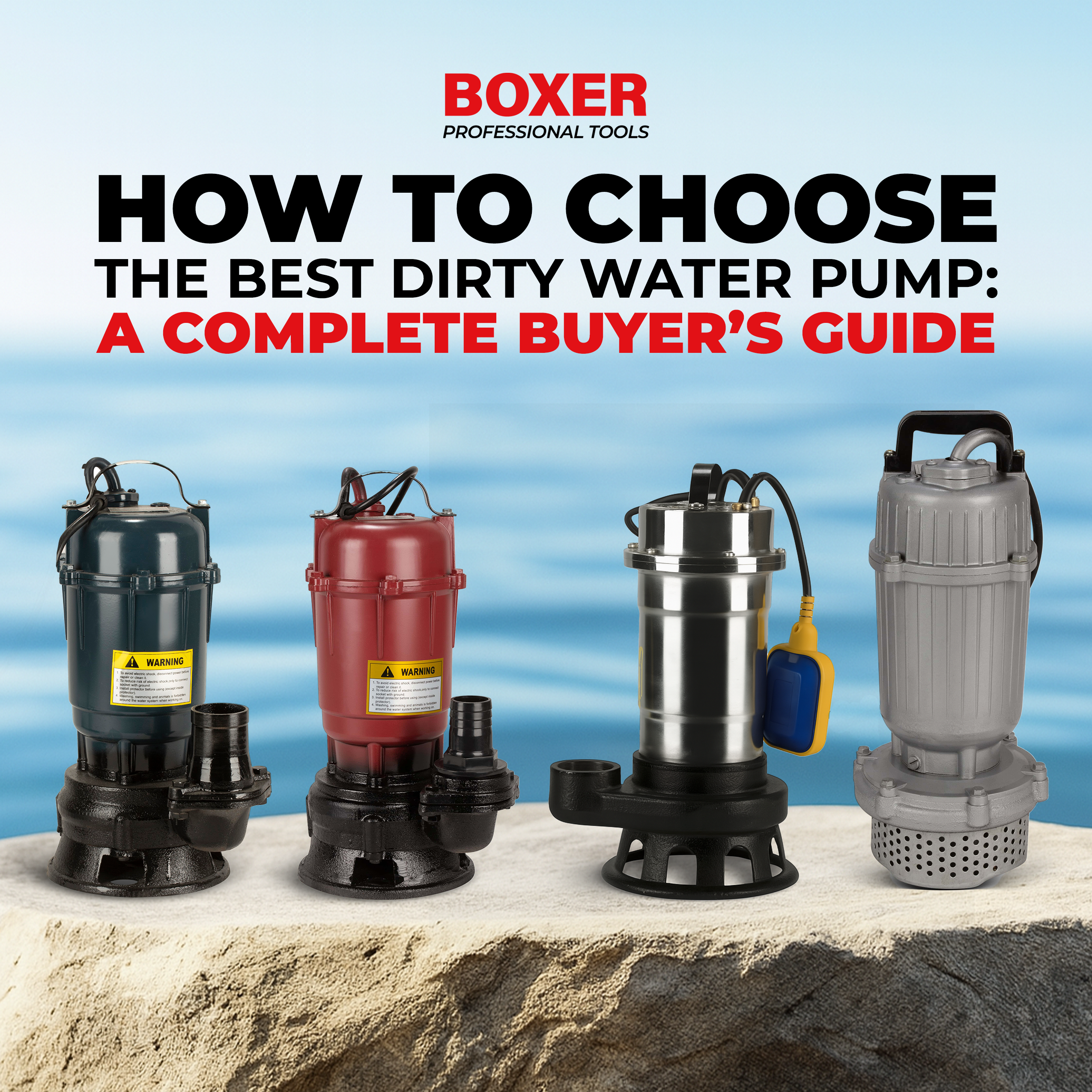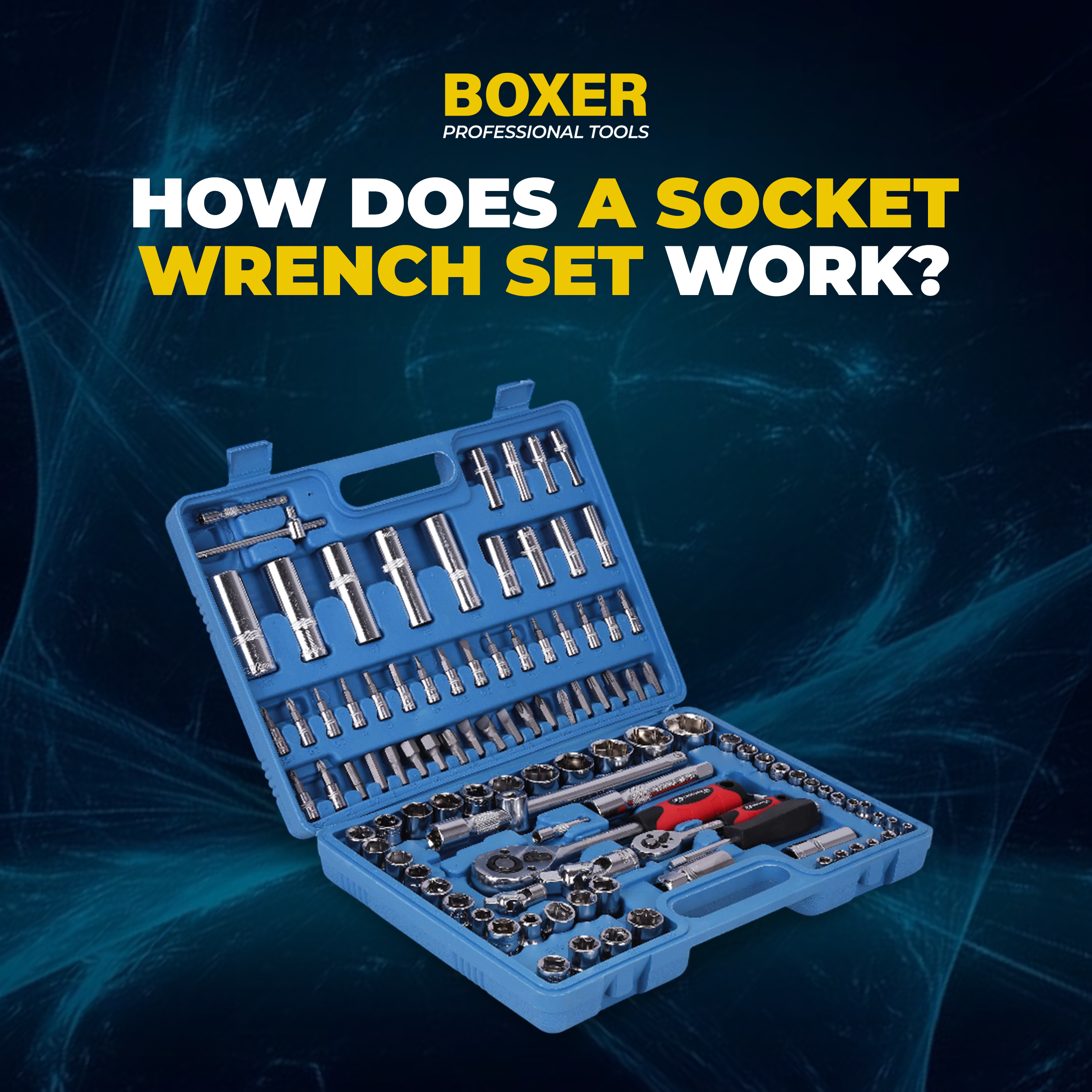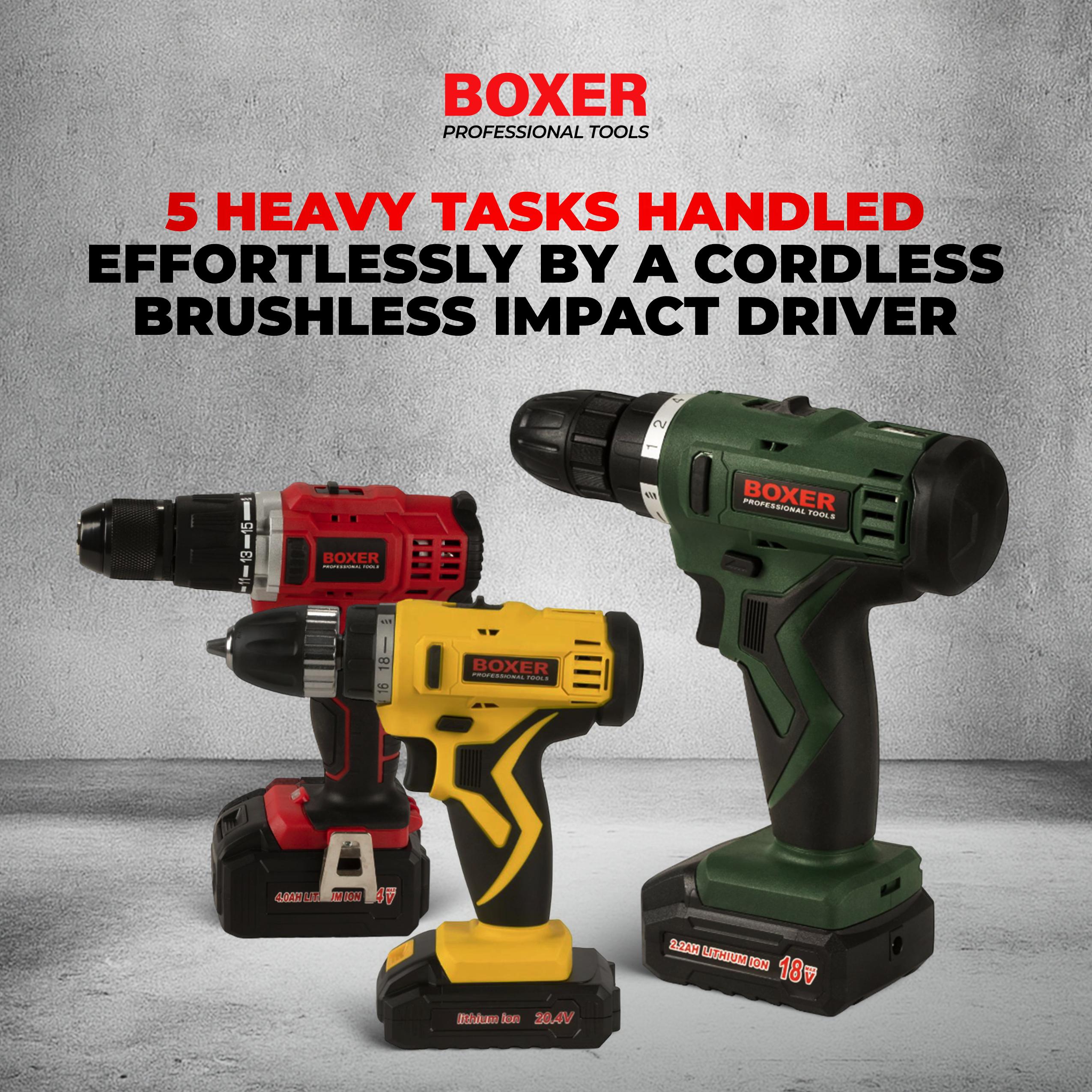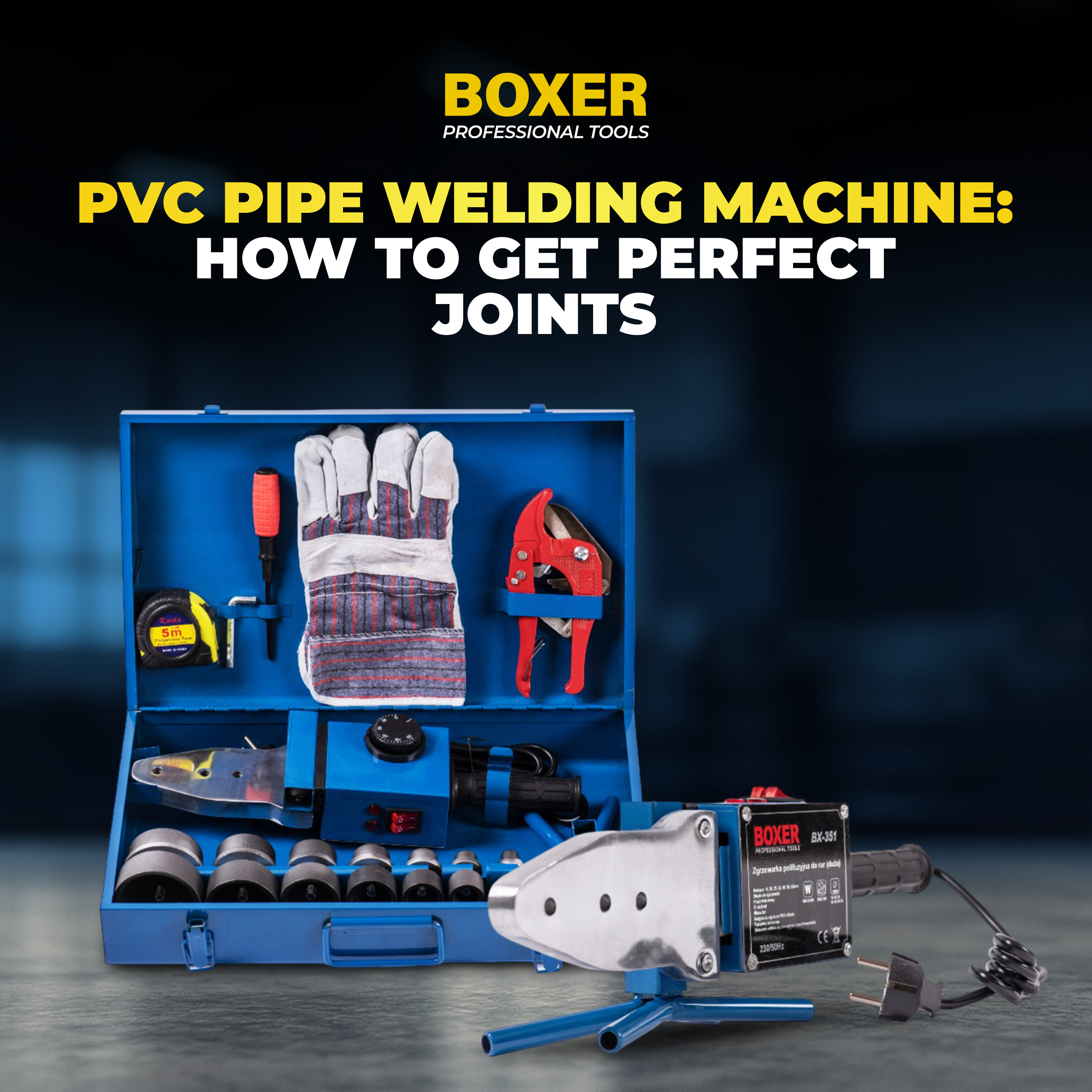
How to Choose the Best Dirty Water Pump: A Complete Buyer’s Guide
Choosing the right Dirty Water Pump is essential for effective water management, especially in demanding environments such as construction sites, basements, gardens, or farms. A well-selected pump ensures reliable performance, prevents flooding, and handles large volumes of contaminated water with ease. In this guide, we’ll help you understand what makes a dirty water pump effective, explore the key features to look for, and highlight the best models from Boxer Tools, a trusted name in durable water pumping solutions.
What Is a Dirty Water Pump?
Common Uses for A Dirty-Water Pump
- Basement Flooding: Water accumulation is removed automatically to keep away structural damages or mold growth.
- Agriculture and Farming: To pump water out of irrigation systems, filtration ponds, and drainage channels.
- Construction Sites: Pumping out mud-laden water from foundations, pits, and trenches and keeping work activity safe.
- Gardens and Landscaping: Water balance is maintained in waterlogged green patches, and soil aeration is done.
- Septic Tank Emptying: Waste and sludge getting pumped out by the grinder type of pump.
- Municipal and Utility Work: Stormwater drainage and public water works.
- Pond and Swimming Pools: Removing dirty water for cleaning or maintenance of ponds and pools.
- Industrial Cleaning: Within factories or garages for oil-contaminated water or any kind of liquid with debris.
- Flood Relief: Swift evacuation of waters during heavy rainfall or natural calamities.
- Tunnels and Mines: Control of seepage and maintenance of access of underground works.
Key Factors to Consider When Buying a Dirty Water Pump
1. Power & Efficiency
2. Flow Rate and Lift Height
3. Durability and Material
4. Submersibility and Safety Features
5. Compatibility and Versatility
Best Dirty Water Pumps by Boxer Tools
1) CP5506 – Float Grinder Dirty Water Pump
- Power: 3550W
- Flow Capacity: 10 m³/h
- Max Lifting Height: 10 m
- Debris Size: Ø35 mm
- Application: Basements, homes, agriculture, gardening
2) CP5511 – Heavy-Duty Dirty Water Pump with Grinder
- Power: 3950W
- Lifting Height: 28 m
- Capacity: 20 m³/h
- Build: Cast iron-metal housing
- Ideal for: Septic tanks, construction, municipal use
3) OX7777 – Multi-Purpose Submersible Pump
- Power: 3750W
- Capacity: 20 m³/h
- Height: 28 m
- Features: Grinder, submersible, thermal switch, cast iron body
4) CP-5003 – Compact Dirty Water Pump
- Power: 3150W
- Flow Rate: 1.5 m³/h
- Lifting Height: 10 m
- Specialty: Compact and lightweight with thermal protection
FAQs About Dirty Water Pumps
A dirty water pump handles floods, waste, and tough drainage with ease. Boxer Tools offers trusted, high-performance solutions built for durability and heavy-duty use. Perfect for basements, farms, or construction sites. Need help choosing the right model? Contact Boxer Tools for expert guidance.
Copyright © 2026 Boxertools | Powered By Orance Media Group








